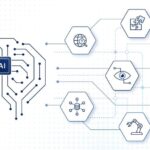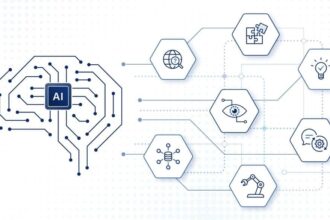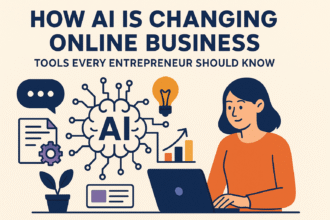Across the tech landscape, a shift as significant as the arrival of the internet itself is underway. Artificial Intelligence, which once seemed synonymous with robotic process automation and repetitive task management, is embracing a deeper mission: understanding each person as an individual. The next wave of AI will be about personalization, not automation—and the implications for business, marketing, and user experience are profound.
For years, automation has fueled digital transformation. AI-powered chatbots handled customer queries; algorithms sorted massive datasets; emails were triggered automatically by predefined user actions. This relentless focus on efficiency and scale made digital operations smoother, but sometimes risked reducing customers to faceless data points. Now, as we enter 2025, hyper-personalization stands as AI’s most transformative promise.
The Rise of Hyper-Personalization
Recent studies forecast that by 2025, personalized experiences will generate up to 40% more revenue for retailers compared to generic interactions. According to McKinsey, 80% of consumers are more likely to purchase from companies offering personalized touchpoints. Personalization is evolving from simple name drops in emails to real-time adaptive content, tailored offers, and emotive recommendations that anticipate what users want before they realize the need themselves.
Recommendation engines from giants like Netflix and Amazon are now standard, but new AI solutions take this further—dynamically adjusting website layouts, product suggestions, and marketing messages for each unique visitor. Businesses are seeing personalized calls to action perform more than twice as well as generic alternatives, with conversion rates skyrocketing as content is designed for individuals rather than crowds.
From Automation to Emotional Intelligence
While automation will always matter for streamlining business processes, the new focus is on adding depth to digital interactions. AI systems are learning to recognize and respond to human emotion—using sentiment analysis and behavioral prediction to create experiences that feel genuinely supportive or empathetic.
This matters beyond retail. In healthcare, AI-powered personalization means treatment plans and wellness advice can reflect a patient’s individual history, lifestyle, and even genetics. In finance, predictive analytics help banks tailor everything from loan offers to financial advice, improving customer satisfaction and trust by meeting people where they are in life.
Why Personalization Drives Better Results than Automation Alone
Performance metrics underline the business case for embracing personalization. Companies that invest in AI-powered customization grow revenue 40% faster than competitors; sales teams using personalized messaging are seven times more likely to hit their targets. Personalized email outreach makes transactions six times more likely, and customized subject lines yield a dramatic boost in open and response rates.
In contrast, automation succeeds best when speed and volume are more critical than engagement. Automated email sequences excel for transactional communications—think password resets or confirmation alerts—with open rates topping 29%. Automation makes workflows more efficient but rarely shifts the needle on investing customers in a brand’s narrative or loyalty.
Balancing Efficiency and Relevance
The most innovative businesses aren’t abandoning automation—but they’re rethinking its role. In sales and marketing, AI blends the efficiency of automation with the nuance of personalization, creating adaptive campaigns that deliver bespoke offers at scale. Micro-segmentation, powered by machine learning, enables marketers to create laser-focused audience groups, each receiving content and offers calibrated in real time for maximum relevance.
Adaptive real-time campaigns mean product recommendations adjust instantly based on a person’s browsing behavior and situation, rather than relying solely on past actions. Websites now display pages and offers tailored to user context, such as location, device, or even the time of day—all thanks to advanced personalization engines.
Navigating Privacy and Ethics
With greater personalization comes responsibility and complexity. Nearly half of businesses implementing AI personalization worry about data privacy or consumer trust. Some users find targeted messaging intrusive, particularly without clear explanations of how their data is handled or protected. Leading brands respond with transparent privacy policies, opt-in controls, and accessible settings to empower customers in managing their information.
Ethical personalization means not just optimizing for conversion, but respecting boundaries and maintaining fairness in how recommendations and content are created. The debate over personalization and privacy will shape the future of AI-driven marketing in ways automation never could.
Real-World Examples of Personalization at Work
The transformation is visible across industries:
- Retail uses AI to analyze purchase history, browsing, and social interactions for precise recommendations, often surprising customers with offers they hadn’t considered.
Healthcare leverages predictive analytics and machine learning for customized treatment plans, improving outcomes and satisfaction.
Financial services create tailored product bundles and investment options based on a user’s transaction patterns and long-term goals.
In each case, personalization motivates engagement and loyalty in ways that automated processes alone cannot.
The Human Factor: AI as a Partner, Not a Replacement
Forward-thinking organizations recognize a crucial truth: technology is here to augment human talent, not replace it. Surveys show that contrary to the fears of job loss, most companies investing in AI plan to boost spending on people and skills. Generative AI is not a one-click replacement for creativity or customer empathy. It needs skilled professionals to provide context, empathy, and judgment, particularly when shaping brand narratives or responding to complex customer needs.
The brightest future lies in partnership—AI learns from human feedback, adapts to evolving needs, and enables teams to focus on strategy, relationships, and innovation.
Looking Ahead: The Next Wave of AI
The next wave of AI innovation goes beyond automated efficiency, making each digital touchpoint as relevant, empathetic, and individualized as possible. Businesses that harness this trend will see stronger relationships, higher engagement, and sustained growth—even as technologies and customer expectations evolve.Personalization powered by AI is reshaping marketing, retail, healthcare, finance, and more. The question for leaders becomes not how much to automate, but how smartly—and how personally—they can engage each user at every step in their journey.







